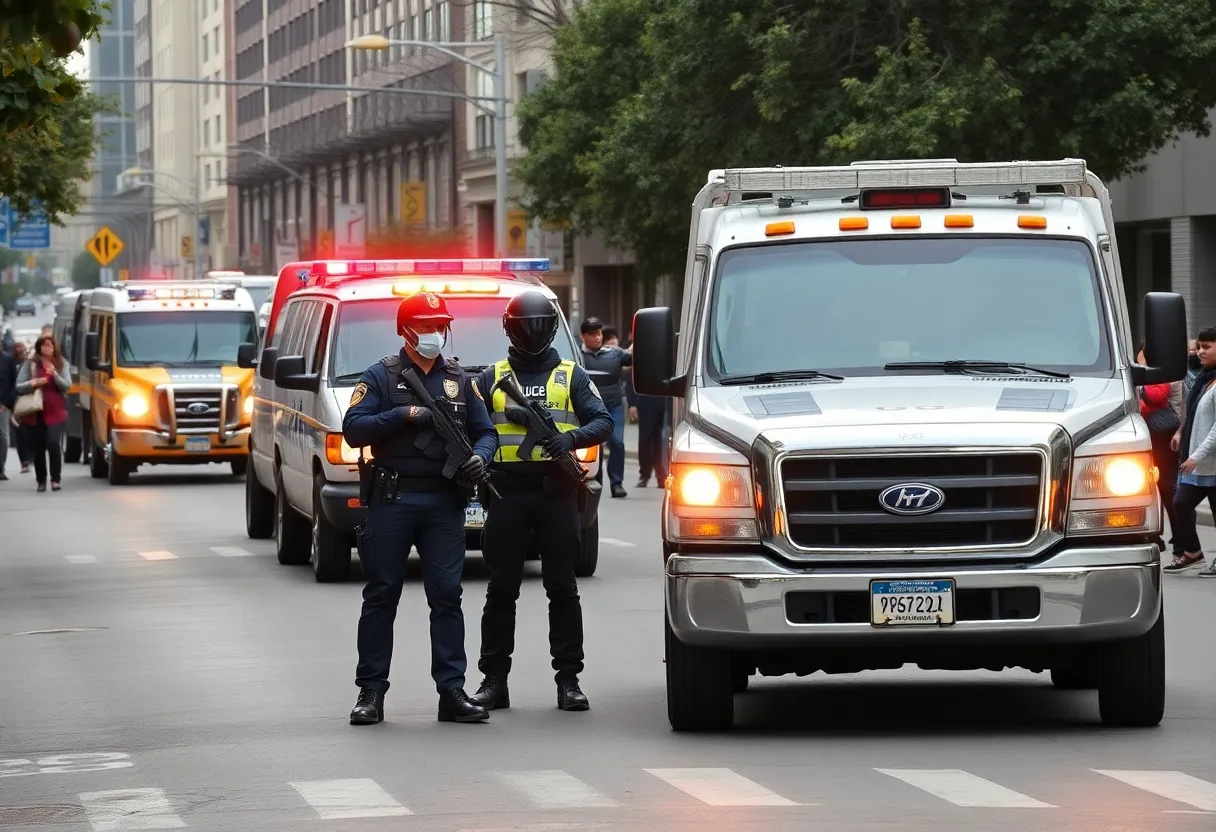

Law enforcement efforts in South Dakota aimed at addressing immigration issues.
South Dakota’s Attorney General, Marty Jackley, has announced a new immigration enforcement agreement with ICE. This initiative aims to empower local officials to address public safety concerns, specifically focusing on violent criminals and drug trafficking, including the rampant fentanyl crisis. The partnership, awaiting finalization, seeks to enhance local law enforcement’s ability to combat serious crime while balancing civil rights considerations.
In a significant move in the ongoing *immigration debate*, South Dakota’s Attorney General, Marty Jackley, took the spotlight during a Project Prison Reset meeting on April 29, 2025, held in Springfield. The meeting set the stage for an *ambitious* new partnership with federal authorities, mirroring a similar initiative championed by Governor Larry Rhoden.
Jackley unveiled plans for a new *immigration enforcement agreement* with U.S. Immigration and Customs Enforcement (ICE), aiming to empower local officials to probe the immigration status of individuals and conduct *warrantless arrests* for suspected violations. This bold initiative is designed to enhance law enforcement’s ability to tackle crime while upholding the *principles of public safety*.
The *pending agreement* seeks to ensure that federal authorities’ involvement remains focused exclusively on *violent criminals* and *drug dealers*, providing a targeted approach aimed at combating serious crime. While the details are still being finalized, the announcement came on the heels of a news conference involving Republican attorneys general gathered at the U.S.-Mexico border, signaling a broader trend towards stricter immigration enforcement across the region.
The proposed integration falls under *Section 287(g)* of the Immigration and Nationality Act, which outlines three distinct models for cooperation between local law enforcement and federal immigration authorities:
The Task Force Model faced suspension in 2012, primarily due to a surge of concerns over *racial profiling* and *civil rights violations*. However, it saw a resurgence during the Trump administration, reflective of a push towards more stringent immigration policies across the country.
The police partnership, still awaiting finalization and lacking official endorsement from ICE, has prompted scrutiny from various quarters. Notably, Josie Harms, a spokesperson for Governor Rhoden, refrained from detailing how state troopers would operationalize their newfound authority under this agreement. This vagueness raised eyebrows, considering law enforcement practices in marginalized communities.
Critics, including voices like Taneeza Islam, CEO of South Dakota Voices for Peace, expressed apprehension that these *immigration enforcement strategies* could deter vulnerable communities, namely victims of *labor* and *sex trafficking*, from seeking help, as fear of deportation looms large. Such potential ramifications highlight the delicate balance law enforcement must strike between enforcing laws and protecting the rights of individuals.
Jackley’s remarks underscored a pressing focus on drug trafficking, particularly regarding the rampant spread of *fentanyl* in South Dakota. As cartels and illegal immigration exacerbate the crisis, the Attorney General asserted that collaboration with ICE is a necessary step to safeguard public welfare from such significant threats.
The *287(g)* program, initially rolled out in 1996 under the Illegal Immigration Reform and Immigrant Responsibility Act, allows local law enforcement to assert specific immigration enforcement duties under ICE supervision. By renewing advocacy for these agreements, Jackley and Rhoden indicate their alignment with broader national immigration policies steered by the Trump administration, drawing a direct connection between local enforcement practices and national directives.
The partnership is set to be formalized through a *Memorandum of Understanding (MOU)* between the South Dakota Division of Criminal Investigation (DCI) and ICE, with a planned Task Force Program to be established in Pierre, South Dakota. Training and resources necessary for this enforcement initiative will be sourced from ICE, who promises to cover all associated costs.
As the political landscape continues to evolve, South Dakota’s law enforcement strategies will undoubtedly remain a focal point of public discourse, emphasizing the ongoing complexities surrounding immigration, public safety, and civil rights. The outcome of this agreement has the potential to reshape how *immigration law* is enforced at the local level, raising crucial questions about the future of community safety and the rights of individuals across the state.
California GOP Chairwoman Discusses Immigration Policies
Federal Grand Jury Indicts 16 in Charleston Drug and Weapons Case
Federal Agents Arrest Man in Money Laundering Scheme
Two Brazilian Men Indicted in $74 Million Money Laundering Scheme
Local Attorney Arrested for Disorderly Conduct in Charleston
Federal Charges Dismissed for Newark’s Mayor Ras Baraka
Roman Austin Car Accident and Personal Injury Lawyers Rebrand for Growth
North Charleston Welcomes New Officers to Its Police Force
Tragic Hit-and-Run Incident Claims Life of USC Student
Bomb Threat Halts Traffic on Interstate 85 in South Carolina
News Summary Frasers Property, a Singapore-based real estate company, has proposed a S$1.37 billion buyout…
News Summary South Carolina has enacted H.3049, making the non-consensual sharing of intimate images a…
News Summary In Minnesota, advancements in personal injury law are marked by dedicated attorneys like…
News Summary Minnesota's personal injury attorneys are adapting to new trends and challenges, including client…
News Summary The personal injury law landscape in Minnesota is transforming as injured individuals face…
News Summary Miami's legal sector is rapidly transforming with the introduction of new personal injury…